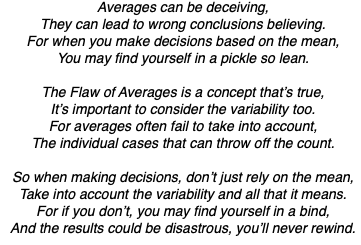When I was a PhD student in computer science, I remember opening a book on recursive function theory. In the introduction it stated that a mathematical equation that I found inscrutable was obvious. I thought: “This book ain’t for me,” and I put it down, never to pick it back up. But the statement nagged at me and a few days later, in a thunderclap of insight, I proved the equation to myself, and my mind was off to the races. For a couple of days and nights, including in my dreams, I searched for parallel mathematical examples, and simultaneously learned something about my own thought processes.
A creative part of my mind would proudly walk into my head with some random idea and say: “Is this an example of the equation?” Then 95% of the time, a judgmental side of my brain would say: “That’s total BS!” But occasionally, the judge would say: “You might have a point there.” What struck me at the time was how totally random the creative part was. Once, when I was asleep, it absurdly suggested that an example of the equation was an element of a weird, irrelevant dream! The judge kicked me out of the courtroom for that one and I woke up.
There is no doubt that random association plays a key role in creativity, and Mozart and other musicians of the time created random algorithms for composing music. Perhaps this was a distant ancestor of ChatGBT, which is described in Wikipedia as of 12-28-2022 as follows:
ChatGPT (Generative Pre-trained Transformer is a chatbot launched by OpenAI in November 2022. It is built on top of OpenAI's GPT-3.5 family of large language models and is fine-tuned with both supervised and reinforcement learning techniques.
ChatGPT certainly has its random association down. Here is what it produced within ten seconds of being asked to write a poem on the Flaw of Averages.
Of course, you know I would never settle for a single point estimate. My colleague, Matthew Raphaelson tried it on his machine, and on his first attempt got something quite similar. Perhaps it always starts with the same random number seed. But on his second request he got the following:
Now how about ChatGPT’s judgement? It’s not great. In a few experiments it got factual stuff quite wrong. But so, what. Imagine ChatGPT playing the role of the crazy random thought generator, and a human paying the role of the judge.
I tried this with a poem on the Metalog Distribution as follows:
“Write a Poem on Metalog How I love Thee let me count the ways. This is about the Metalog Probability Distribution.”
It started out with:
Stop the presses! The whole point of the Metalog is to go beyond the bell curve.
So, I provided more guidance as follows:
“Write a Poem on Metalog How I love Thee let me count the ways. This is about the Metalog Probability Distribution which can mimic other distributions both symmetric and asymmetric.”
And it came up with:
Sheesh! (quoting the Metalog’s inventor, Tom Keelin, when he saw this).
I would not have received D’s in three out of four years of high school English if I had had ChatGPT. And let’s not forget that the human brain, even with medical breakthroughs, can only grow smarter for as much as 100 years. How long will ChatGPT and its ancestors grow smarter? Forever!
© Sam L. Savage, 2023




